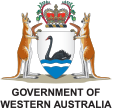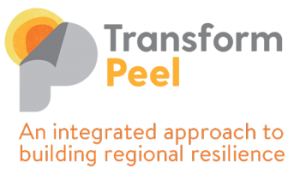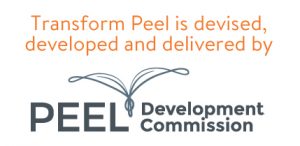Investing in Transform Peel
Transform Peel is a long-term plan for the future of the Peel region’s growth, wellbeing and prosperity.
This is a program to drive growth in the Peel region by creating new industries, more jobs and better food security; a development of State and national significance.
We have cross-agency investor mobilisation capability via WA Open for Business, Austrade, Department of Jobs, Tourism Science and Innovation, and Department of Primary Industry and Regional Development.
Target businesses
The Peel Business Park is zoned general industrial and therefore almost all business can locate there. Nonetheless, the Peel Business Park is positioned as a WA Agrifood Innovation Hub with the Shire of Murray’s Food Innovation Precinct Western Australia the centrepiece.
The types of business that would fit with the agri-food innovation vision include:
- Food manufacturers of all kinds
- Intensive food production, e.g. vertical farms, glasshouses
- Bio factories – businesses which produce food (and other products) from algae, enzymes, bacteria and fermentation
- Food researchers and institutions
- Food equipment manufacturers
- Start-ups that want to be a part of the ecosystem
Businesses and organisations that have confirmed their commitment to the Peel Business Park are Shire of Murray’s Food Innovation Precinct Western Australia, Department of Fire & Emergency Services – Bushfire Centre of Excellence, Westurn Engineering, and Bells Engines. As you can see, the firms that have chosen to take up land are general industry businesses.
Grants and incentives
There are a range of support mechanisms. Some general Government grants programs that have been open and are likely to have another round are:
- Regional Economic Development Grants
- Value Add Agribusiness Investment Attraction Fund
- Innovation vouchers – yet to be announced
Investment and planning resources
The following reports and resources may be useful in preparing investment scenarios:
Nambeelup Industrial Area District Plan
Transform Peel Workforce Skills Analysis Report – Factsheet
Transform Peel Workforce Skills Analysis Report – Summary
Transform Peel Workforce Skills Analysis Report – Full report
Developing Premium Value-added Grain Products in WA (2018)
To help grower groups and grower group members investigate and realise premium grain and cereal product opportunities in Western Australia.
WA Meat Industry Snapshot (2017)
A summary of Western Australian Meat Industry – Overview for Potential Investors and Other Stakeholders
WA Arable Crops Industry Snapshot (2017)
A summary of Western Australian Arable Crops Industry – Overview for Potential Investors and Other Stakeholders
New Opportunities in New & Emerging Agricultural Industries in Australia (2017)
Emerging agricultural industries with high potential for growth exist at the intersection of hobbyists and industries at scale.
Target Market Opportunities Report (2016)
https://www.agric.wa.gov.au/sites/gateway/files/coriolis_dafwa_TMO.pdf
The Target Market Opportunities report identified 20 high growth, high value premium opportunities at the intersection between what Asian consumers want and what Western Australia can produce. These opportunities range from existing products targeted at new and emerging markets, to all new products. All identified opportunities share a common thread; they all have large and growing demand from emerging consumers across Asia and/or the Middle East. In addition to the top 20, a great set of “just missed the cut” products also present great opportunities. According to the research, these opportunities have the potential to deliver an estimated $1.3b per year in incremental, new export revenue to Western Australia in the next five to seven years.
Plus 20 detailed reports on high growth, high value premium opportunities at the intersection between what Asian consumers want and what Western Australia can produce. To access the reports, click on the products listed below;
Premium Agri-Food Market Opportunity (2016)
What market opportunities can be identified for premium (including organic) WesternAustralian agri-food products?
Investment Ready: WA Agribusiness report (2016)
This document is designed to assist Western Australian agrifood firms target and attract the right investment to their opportunities. For some this will mean outright sale to a global multinational. To others, this could mean private investment in an exciting growth platform.
Pathways to Competitiveness (2016)
This report identifies the key drivers of global competitiveness, highlights the practices that characterise international competitiveness and defines mechanisms to promote international competitiveness. It draws lessons from peer regions that have significantly increased production and competitiveness over a relatively short time period.
WA Finding the Road Forward in Food (2015)
Opportunities to Increase Western Australian Agrifood Export


